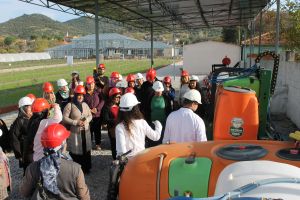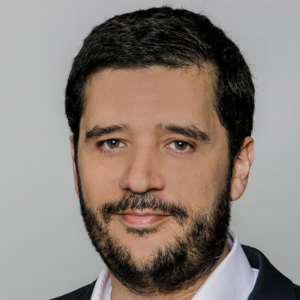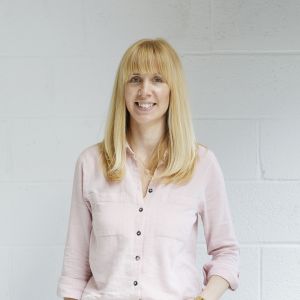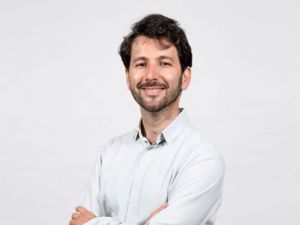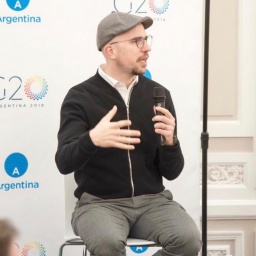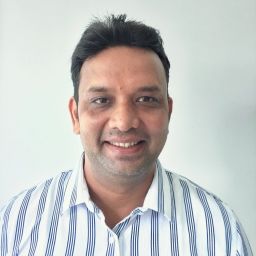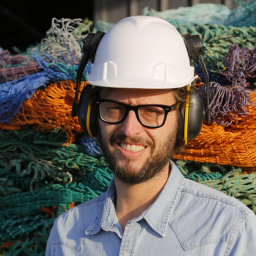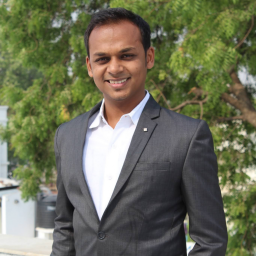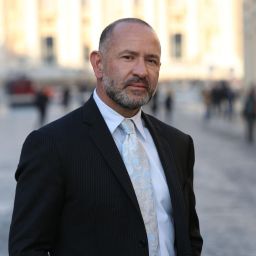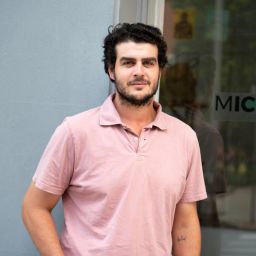Meaningful Business (MB:) Please tell us a bit about your background.
Tülin Akın (TA): I founded Tabit, an agricultural technology company, in 2004 when I was a student. It prepares rural life for the future through technology. I have been trying to find solutions to the problems that farmers face, which include sticking to old production methods, consequences of weather events, dependency on the middleman, and difficulties in accessing technology and information.
My first project was ‘AgriculturalMarketing.com’, where farmers sell their products directly to the consumer and reach new markets. However, it was 2004 when there was no social media, farmers had limited access to the internet, didn’t have computers, and literacy rates were low. In partnership with a bank, I found a system that enabled farmers to access micro-credits at zero or low interest rates, which meant they could purchase agricultural production equipment and materials. Today, each and every bank has copied the model and provides this service to farmers in Turkey.
In 2009, I founded a farmer SMS News Service which today has 1.5 million subscribers in Turkey and 4 million subscribers in Africa. I planned and operated an education service to give technological information to farmers located in twelve thousand villages, visiting them one by one. This organisation showed me that farmers are affected by each other’s actions. There is a saying in Turkish, “Turks’ minds are in their eyes.” It means Turkish people do not believe without seeing. It applies to farmers as they don’t believe the benefits of a technology without seeing and experimenting with it themselves.
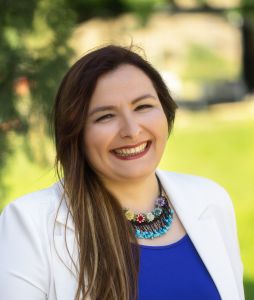
Tülin Akın, Founder, Tabit Smart Farming Technologies Inc.
MB: Please introduce your business and the problems you’re trying to solve.
TA: Based on my previous experiences, I designed and founded the first technology and education campus for farmers in the world – the Smart Village – is established within a 300-acre area. Farmers receive applied training on 23 different products, in addition to plantation, gardening, and green housing. There are various technologies within the Smart Village project, including early warning systems, digital leafs, digital pheromone traps, solar-powered drying systems, AI-backed irrigation systems, smart pasture, and smart milking systems. The Smart Village receives visitors from all around the world. They learn how to increase productivity, decrease costs and farm better without causing any damage to nature.
My goal is to support farmers’ production with information and technology, increase the quality of life in rural areas, and encourage them to become a new generation of entrepreneurial farmers.
The majority of family farmers, of which there are 550 million worldwide, provide 80% of food production and have limited or no access to technology, thereby overspending in chemical and fertilisers. This results in revenue loss and poisons the land and groundwater. Furthermore, unprofitable agro activities drive more people to cities causing increased pollution and social problems.
Farmers receiving training inside the Smart Village
MB: What is your biggest challenge right now and what support do you need?
TA: In order to scale and replicate the model, we have to recognise that climate and agricultural production habits vary in different regions. Therefore, region-specific modelling should be made, and technological development and human resource management should be applied accordingly. We want to scale the Smart Village project to other countries where small family farming is common. We have difficulties in accessing country-specific information and financial resources.
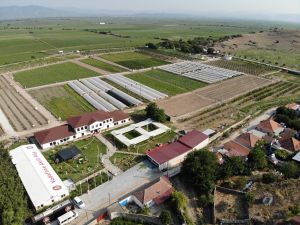
An aerial view of the Smart Village
MB: What is your ambition for the future of your business?
TA: Implementing the Smart Village project in different countries and encouraging youth to develop entrepreneurial activities in the agriculture industry. We want to decrease the average age of farmers by using our Smart Village training and R&D centre as an area of attraction, and support newer generations’ innovative approach towards agricultural activities.
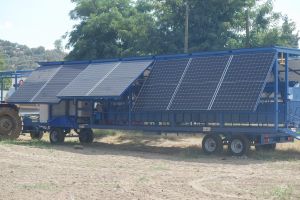
Solar Panels in the Smart Village
MB: What is your advice to other leaders who want to combine profit and purpose?
TA: The main purpose of a business may be to optimise profit as well as to meet consumer needs, but social benefits should also be provided by meeting the needs of the target audience. When a social benefit is provided, the ‘customer group’ feels more like a ‘beneficiary.’ There is a close relationship between social responsibility and ethical marketing. Concentrating marketing activities and purposes only on profit, ignoring social development and social interests is to fall behind in this age.
________
Quickfire Questions
MB – Tell us a mistake you’ve learned from:
TA: I didn’t show the contracts to a good lawyer. I have overlooked costs at times. These have caused great harm.
MB – How do you spend your time away from work?
TA: I travel to places I’ve never been before.
MB – What’s the best piece of advice you’ve ever received?
TA: To grow the business by outsourcing and by creating a core team of qualified managers.
MB – What is the one book everyone should read?
TA: Everyone’s inspiration is different. I am inspired by many books. Currently I reading Malcolm Gladwell’s David & Goliath and it’s excellent.
MB – What is something you wish you were better at?
TA: I want to be able to speak many languages.
MB – What’s one thing you want to achieve in 2022?
TA: I want to complete a project abroad for my business.
________
Discover the other leaders recognised on the 2021 MB100, for their work combining profit and purpose to help achieve the United Nations Global Goals, here.


